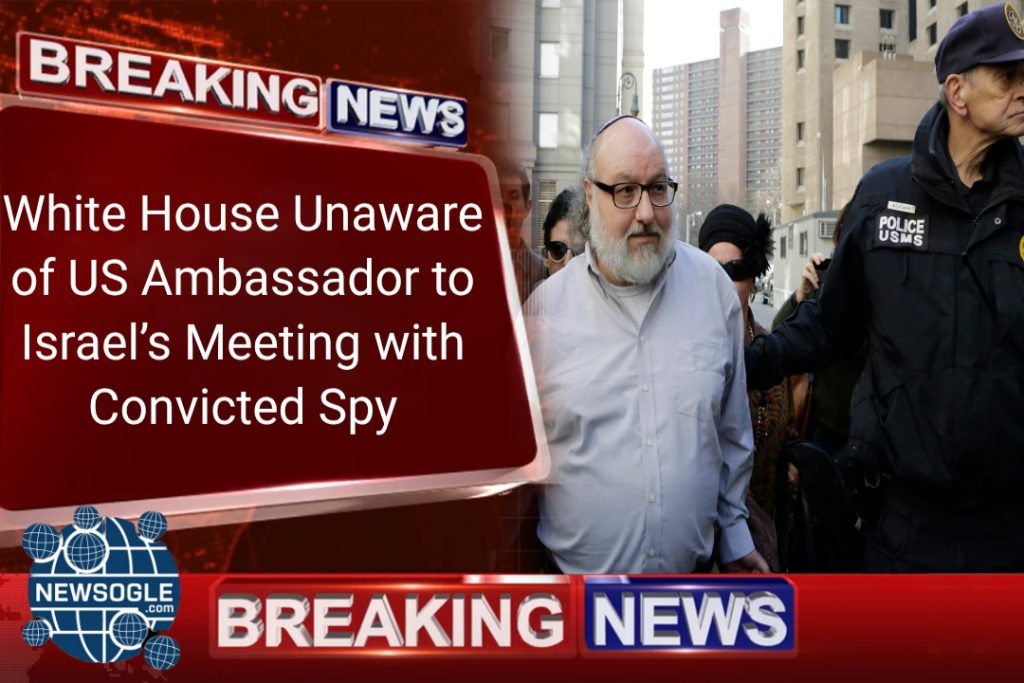
A significant internal controversy has erupted in Washington D.C. following reports that the White House was completely unaware of a recent, high-profile meeting between the US Ambassador to Israel and a nationally Convicted Spy. The revelation, initially reported by Al Jazeera, highlights potential communication failures within the State Department and risks straining the already complex relationship between the United States and Israel.
The meeting has sparked intense scrutiny, forcing the White House to distance itself from the encounter and prompting calls for a full review of the Ambassador’s protocols and communications regarding highly sensitive diplomatic engagements.
The Unsanctioned Meeting and White House Reaction
The meeting involved the U.S. Ambassador and [Insert Name of Convicted Spy], a figure notorious for espionage against the United States. Such interactions are traditionally vetted at the highest levels of government due to their potential geopolitical fallout.
- Lack of Clearance: White House and National Security Council officials have confirmed that they had No Prior Knowledge of the Meeting, emphasizing that no clearance or authorization was granted for the interaction.
- Official Stance: In response, a White House spokesperson issued a brief statement reiterating the U.S. government’s long-standing position on the spy case while stressing that the Ambassador acted independently of executive knowledge. This move serves to quickly control the narrative and minimize the appearance of a deliberate policy shift.
Potential Fallout and Internal Scrutiny
The incident immediately raises serious questions about diplomatic conduct and intelligence protocols, particularly in a region as sensitive as the Middle East.
1. Communication Breakdown
The primary concern is whether this reflects a severe Communication Failure between the U.S. Embassy in Jerusalem and Washington. The role of the Ambassador is crucial in maintaining the US-Israel Relationship, and unsanctioned actions can undermine strategic foreign policy objectives.
2. Geopolitical Sensitivity
The convicted spy remains a highly polarizing figure, and any interaction by a high-ranking U.S. official is viewed as symbolic and politically charged. Even a brief, unsanctioned meeting can be misinterpreted by foreign adversaries or allies as a shift in official U.S. policy or a softening of resolve on intelligence matters.
3. Review of Diplomatic Protocols
The episode is expected to trigger an immediate, high-level review by the State Department regarding the protocols for Ambassadorial contact with individuals deemed adversarial or sensitive to U.S. national security. The goal will be to ensure all sensitive engagements are properly reported and approved, preventing future Diplomatic Embarrassment.
Conclusion: An Unwanted Distraction
This lapse in communication and protocol has created an unwanted distraction for the Biden administration, which is focused on navigating complex regional security challenges. While the White House works to assert that this was an isolated incident, the revelation that the US Ambassador Meeting Spy occurred without official knowledge will likely fuel political opposition and lead to demands for greater transparency and accountability in American diplomatic operations abroad. The focus now shifts to the State Department to determine how such a significant diplomatic engagement slipped under the radar.

Aleda Kawis is the Professional Journalist and serving in the field since 2012. She keeps extensive experience as investigating journalist and media influencer.





